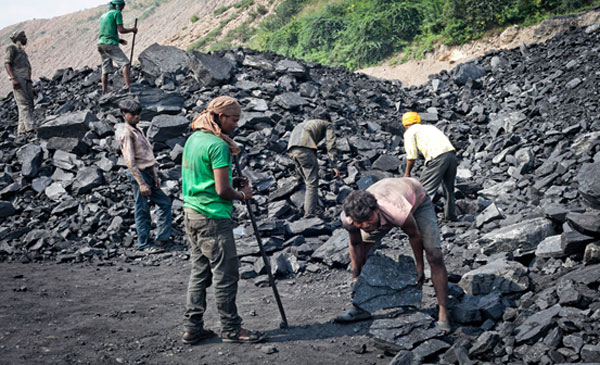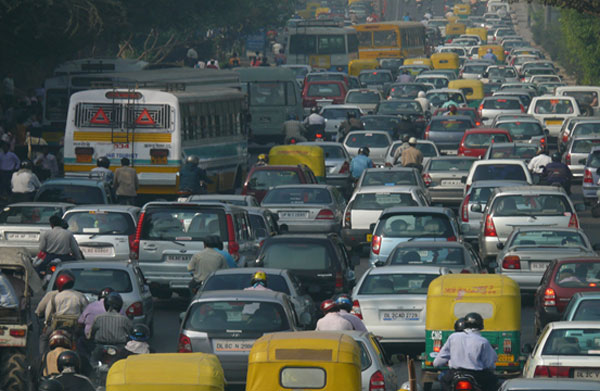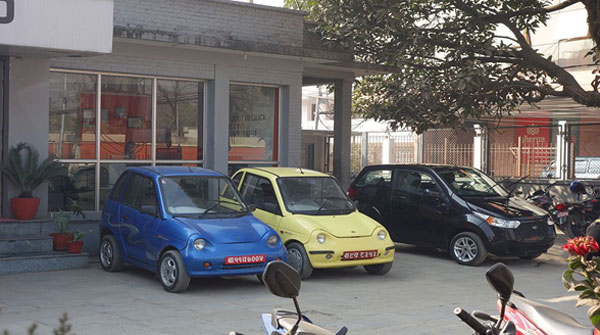Newsletter - August 23, 2018
Told you so: Local residents are paying a high price for the state govt. turning a blind eye to ominous warnings
BIG CLIMATE STORY: KERALA FLOODS
Worst flood in 100 yrs: Kerala warnings ‘brushed aside’
Kerala is witnessing a “man-made disaster” that was waiting to happen: 2011 Gadgil report found “most vulnerable zones” in Kerala. A 2014 study of rainfall data blamed global warming, a 2017 study held deforestation responsible. “Knowing full-well what was to come”, state was forced to open shutters of 35 of 39 dams. Extensive quarrying, high rises (for tourism), forest land acquisition by private parties, were factors state brushed aside.Seen the numbers yet? CPCB insists Singrauli’s industrial emissions data is not reliable enough for public disbursement
Data secrecy killing Singrauli, courts need “hard evidence”
10 years after their district was declared “critically polluted” residents of “energy capital” Singrauli struggle to stay alive amid 10 towering coal plants, fly ash, coal dust, fluoride, mercury poisoning and huge state apathy: courts require “hard evidence of personal injury.” Pollution-management plans are only on paper, “there’s no way to monitor” (Every village was to have Reverse Osmosis plant, there’s none on the ground).
Experts say India’s Industrial pollution data is not shared with people. CPCB officials said lack of confidence in the data being shared by industries is one reason it is not made public.
Pockmarks of doom: GHG emissions from thawing permafrost could exacerbate extreme weather events
2 Arctic sites not freezing—even in winter
The next five years will be ‘anomalously warm’
The past four years were the warmest-ever recorded and the next five will be “anomalously warm”, beyond what global warming would produce on its own, says a new study, linking the added warming with earth’s natural “internal variability”.
2 Arctic sites not freezing—even in winter
New data from Arctic Alaska and Russia suggest some surface layers are no longer freezing. “If that continues, greenhouse gases from permafrost could accelerate climate change.” Scientists are tracking “what happens as carbon-rich land that has been frozen for centuries begins to thaw.”
US’s hidden Methane emissions
Fresh analysis of US government data has revealed hundreds of unregulated coal mines are releasing methane with a global warming impact equivalent to 13 million cars. The massive methane pollution is “largely unnoticed.”
Not climate-friendly though: Bolsonaro’s threat to pull Brazil out of the Paris deal reeks of economic shortsightedness
Brazil presidential frontrunner threatens to quit Paris deal
Brazil’s right-wing presidential frontrunner Jair Bolsonaro has threatened to quit the Paris deal if he wins in October. Home to the world’s largest rainforests, Brazil ratified Paris Accord through congress. Bolsonaro and his 3 politician sons call Paris deal a “globalist conspiracy.”
Australia shelves emission reduction targets amid calls to quit Paris Accord
Australia has shelved plans to adopt its 26% emissions cut target into law over bitter domestic politics despite currently suffering from its worst ever droughts, heat waves and bush fires. Its proposed National Energy Guarantee also hasn’t ruled out coal-fired power for what it views to be cheaper power supplies.
The govt.s’ adversaries may even pull Australia out of the Paris Agreement, but weakening the Agreement further could cost the country reportedly $126bn a year in adverse climate impacts.
Trump’s new emission norms ‘worse for climate change’
Trump’s new “Affordable Clean Energy” plan, to cut coal plant emissions could make climate change worse. Replacing Obama-era plan, the ACE allows states to set their own coal emission standards or get exemptions.
Suspiciously clean: TERI’s study suggests cars in Delhi only account for 3.5% of its sickening air quality figures
Only 36% of Delhi’s bad air is its own doing: TERI Study
A joint TERI-ARAI study says Delhi itself may be responsible for just 36% of its PM2.5 pollution. Rest is from regions beyond the city. “Within the 30% contribution of industries, brick-making accounted for 8%, power stations 6%, stone crushers 2%. In transport’s 28% share, trucks contributed 8%, two-wheelers 7%, three-wheelers 5% and cars a mere 3.4%.”
Study: If India meets pollution norms, life expectancy may increase 6 yrs in Delhi
Latest research says if India successfully meets own air quality goals, life expectancy of people living in Delhi and across Indo-Gangetic plains would increase by over one year on average, and by four years if WHO norms are met. In Delhi, “people would live six years longer if air quality met national standards.”
Court allows study of CNG-hydrogen mixed fuel
To curb air pollution, Indian Oil Corporation Ltd told Supreme Court it was conducting a study mixing CNG and hydrogen fuel for buses. The court allowed them Rs 15 crore collected under environment compensation charge to conduct the study, expected to yield results in 6 months.
Pollution check: Supreme Court okays colour-coded stickers for vehicles
By September 30 vehicles in National Capital Region will have colour-coded stickers identifying various kinds of fuels. The Supreme Court accepted Centre’s proposal: diesel vehicles will have orange stickers, while petrol and CNG vehicles will have blue stickers on the windscreen.
Timely rescue: The Madras HC’s orders over solar module imports come at a critical juncture for the industry.
Safeguard duty deferred, for now
The government has deferred safeguard duty on solar imports from China and Malaysia for the “time being” in compliance with the interim stay by Orissa High Court. The Madras High Court allowed Shapoorji Pallonji to get its solar module imports released without the payment of safeguard duty until the matter is resolved.
India could exceed 2022 target via solar pumps
New analysis, says India could surpass its solar power target of 100 GW by 2022 if solar pumps were to replace traditional water pumps in farms. “Biggest concern is quality, lower quality systems will not last for ten years.”
After India’s ISA, China’s International Investment Alliance for Renewable Energy
Is it China’s response to International Solar Alliance? China may be slashing subsidies at home, and aggressively backing its companies overseas. China has launched International Investment Alliance for Renewable Energy – a large alliance to reach out foreign markets for its solar equipment.
National Energy Storage Mission proposed
Centre has proposed National Energy Storage Mission (NESM): the draft encourages manufacturing, deployment, innovation and cost reduction. NITI Aayog and Rocky Mountain Institute’s joint report proposed scaling supply chain strategies; and scaling up of battery cell manufacturing.
Greenko’s billion dollar Orange deal may be scrapped
Greenko’s $1bn acquisition of Orange Renewables’ Indian solar and wind assets may be scrapped. Greenko’s board raised concerns over Orange’s wind power project in Andhra Pradesh and the latter’s parent firm has also run into regulatory hurdles.
China to WTO: US ‘seriously damaged’ our trade interests, broke WTO rules
China has lodged complaint with WTO saying U.S. decision to subsidise renewable firms and slap tariffs on imports undermined WTO rules and authority and “seriously damaged” China’s trade interests.
Soon with a dash of green: Green license plates could spark more public interest in EVs across India
Green number plates for EVs
State-owned Energy Efficiency Services Limited (EESL), with World Bank and World Resource Institute, has thrown a 2-month-long innovation challenge to entrepreneurs and start-ups to develop cheaper and efficient electric cars (priced Rs 10 lakhs). India will host the first Global Mobility Summit (MOVE) on September 7-8 to leverage “tremendous potential for a fundamental shift, scale and size”
Green number plates for EVs
Transport ministry released new EV rules: all battery-operated vehicles will have green number plates. Commercial EVs will have yellow numbers on green plate. Private EVS will get green number plate and white numbers.
BHEL to make EVs; Ashok Leyland E-buses in London; Hyundai Vs Maruti Suzuki
BHEL Trichy is set to “aggressively” diversify to electric-mobility and revamp for large-scale production of EVs. Hinduja flagship Ashok Leyland has bagged order to supply 31 units of London’s iconic red EV double-decker buses. And, South Korean major Hyundai will introduce full range of EVs in India to compete with Maruti Suzuki’s 2020 EV plans.
Maharashtra to get India’s first EV charging corridor
Magenta will set up “ChargeIn”, India’s first EV charging corridor at Mumbai-Pune Expressway. Starting at Lonavala, the network of charging stations will extend to Bangalore and Mysore. Meanwhile, Exicom bagged NTPC tender to set up EV charging infrastructure at Jabalpur for e-buses.
Two Chinese EV platforms in $730 million push
As China continues to push EVs to curb pollution, Chinese giant Geely’s ride-hailing service Caocao Zhuanche is aiming to raise up to $437 million in new funding, while state-owned SAIC’s EvCard, an EV rental service is considering raising $292 million.
Volvo-Eicher plan affordable EVs for public transport
VE Commercial Vehicles (VECV), a Volvo-Eicher Motors joint venture is developing a complete range of electric vehicles for public transportation (have earmarked capex of ₹ 500 crore for 2018-19 to make affordable e-buses).








